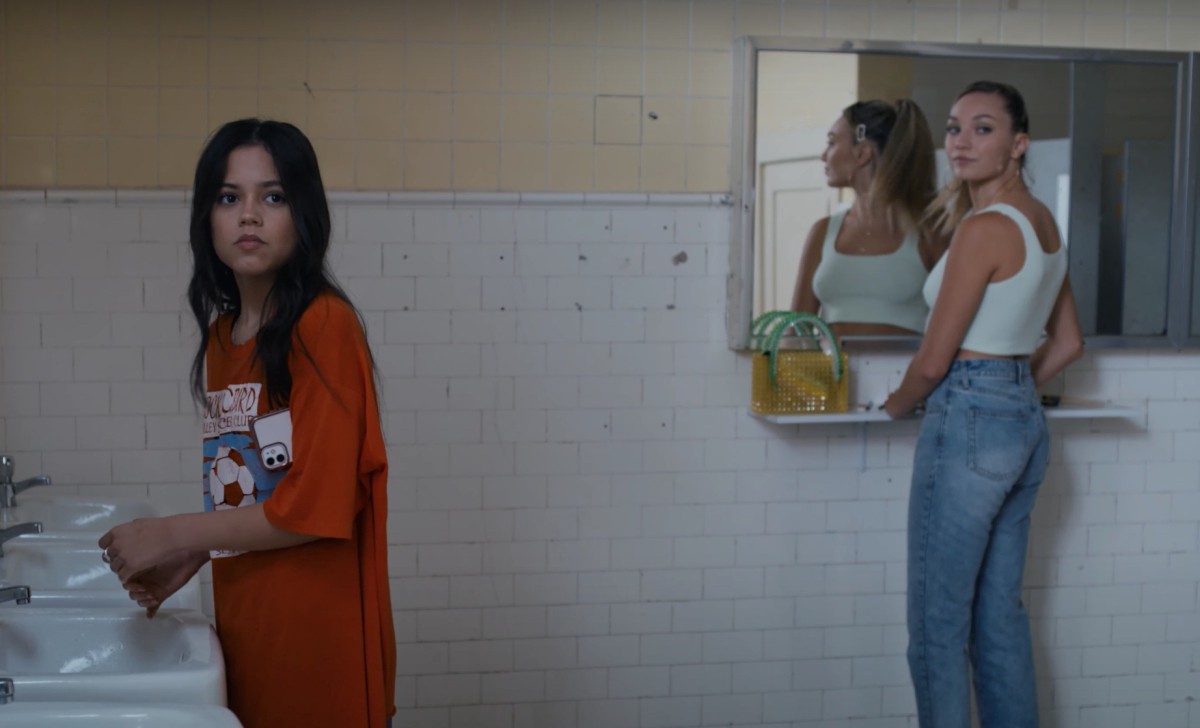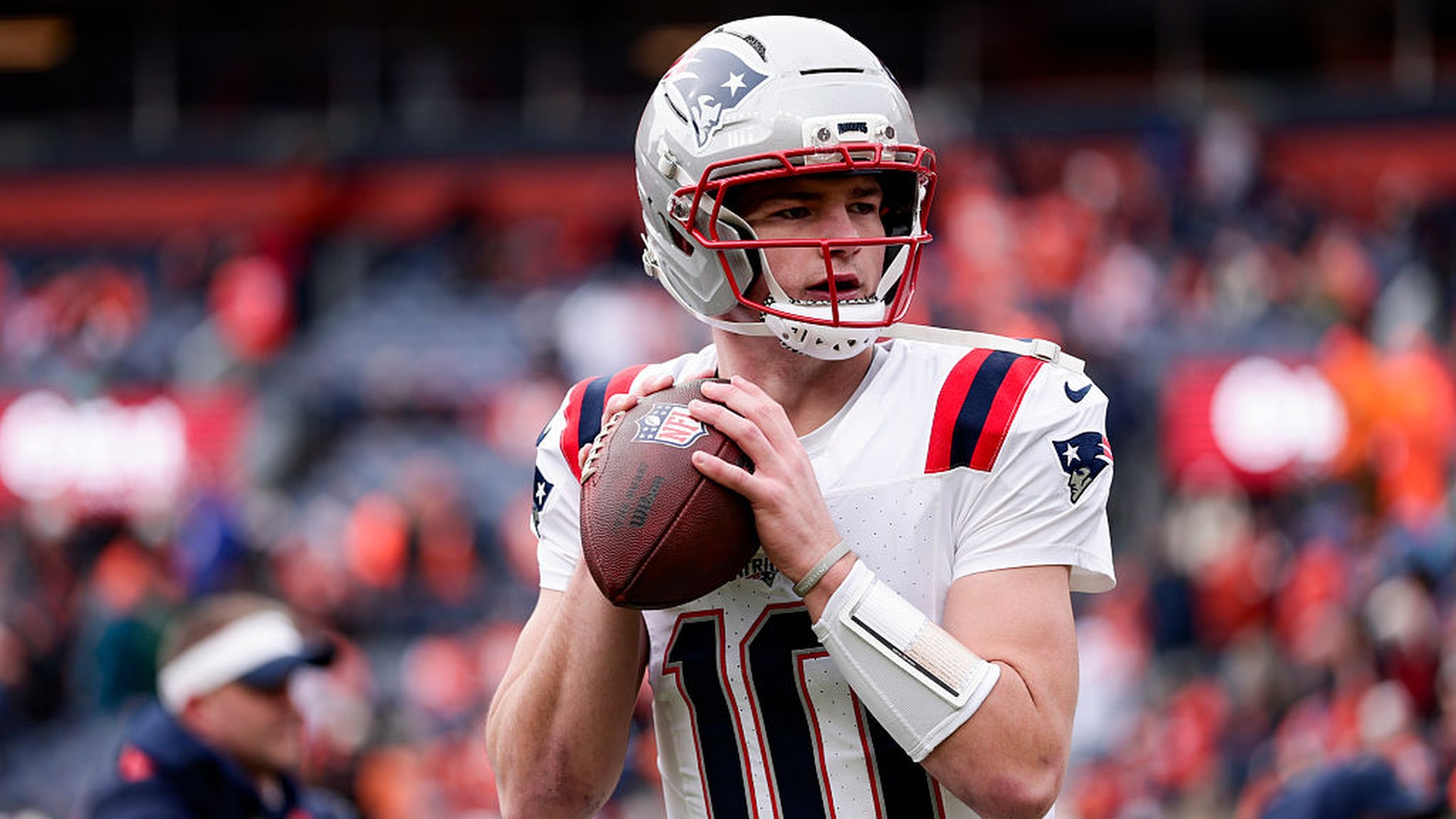What to Watch Verdict
'The Fallout' is essentially Jenna Ortega (and company) knocking the wind out of audiences for its entire duration—as paralyzing, miraculous, and necessary a watch as you've heard.
Pros
- +
🍷 Fearless cinematic addressing of national issues.
- +
🍷 A powerful ensemble.
- +
🍷 Jenna Ortega is awards-worthy.
- +
🍷 A devastating drama that still finds moments of inspiration.
Cons
- -
🍷 For most, a "watch once" kind of film.
- -
🍷 Specifically about short-term effects, some might desire longer analysis.
The Fallout is part of our SXSW 2021 coverage. You can find all of our reviews here.
As a conversation sparker, Megan Park’s The Fallout—SXSW 2021’s narrative award recipient—bears the weight of an entire generation left traumatized and fearing the most basic human right of routine safety. As a feature debut, Park’s real-time exploration of school shootings' immediate effects on survivors is immensely confident and miraculously compartmentalized. It should infuriate and remind audiences of the last pandemic sweeping America before COVID-19—statistically predictable gunmen murdering innocent children—but not as any cheap exploitation. The Fallout is a response to every cowardly troll attacking teenagers who watched their classmates die, a retort to every politician protecting unfit weapons legislation, and a plea for sons, for daughters—for everyone—to live in an America where primary educational attendance isn’t a life or death risk calculation.
Jenna Ortega stars as Vada Cavell, who quivers in a bathroom stall with Instagram superstar Mia (Maddie Ziegler) and Quinton (Niles Fitch)—blood staining his white shirt—while an active shooter fires on screaming students. All three survive, since Park’s screenplay focuses on Vada’s recovery process as everyone attempts to cope in their unique ways. Vada’s BFF before the incident was Nick (Will Ropp), who becomes more distant while devoting his energy to leading marches and appearing on broadcast news platforms. Instead, Vada finds herself bonded to Mia and becoming accidental besties since Mia’s parents are in Japan—they can drink, smoke, and “process” in secret. That doesn’t help Vada’s home situation, since parents Carlos (John Ortiz) and Patricia (Julie Bowen) can’t force their daughter to open herself emotionally, yet their worries are endless. Not to mention how little sibling Amelia (Lumi Pollack) loses her bubbly, supportive sister that fateful day as well, now pestering a Vada who doesn’t seem to care.
I liken The Fallout—from afar—to titles like Assassination Nation and Spontaneous, more the latter where themes very much come from a place of sickness over repeated tragedies. Statements like “America The Great,” even removing their delusional sources, ignore the countless cries of civilians calling from inside the damn house with concerns that fall on deaf officiant ears. Park exhibits the fearlessness to blast such ignorance by writing something that dares shred through lies—and still find moments worth inspiration—by intensely reconfirming cinematic art as a platform for progressive protest. The Fallout takes an up-close-and-personal route to condemn tragic events that have become normalized by some dystopian standard, as it's impossible to turn a blind eye on Vada's broken psyche despite our country's best efforts through "thoughts and prayers." Intentions and execution mean to knock the wind out of your system because nothing else seems to make a difference.
I bring up Spontaneous specifically as a favorable comparison in the ways The Fallout allows its characters to openly mismanage and feel directionless while navigating loss, trauma, and depression. Ortega plays a character who’s asked to return to school—where audible triggers like a soda can crushing underfoot remind of the single-shot, then automatic pops of gunfire (aces sound design). Someone whose relationships with family and friends forever alters because she’s dealing with the existential needlessness of another school massacre mixed with the survivor's guilt of pondering why she didn't exit school in a body bag like Quinton’s brother. Ortega is tremendously talented whether she’s tripping on ecstasy while “swimming” down a staircase (comedic), allowing her inhibitions to run free with wilder-child Mia (self-medication), or expressing frustration towards parents who are trying their best within the chalk-outlined boundaries. What a performance, hinging The Fallout on its allowances to be imperfectly sloppy like Katherine Langford does Spontaneous.
Although, Ortega’s navigation of reflexive numbness—incomprehensible anguish and anxieties—emboldens because of her surrounding cast. Julie Bowen makes her mark when Ortega’s good-girl unloads a heap of coming-of-age confessionals met with Bowen chugging wine. John Ortiz coaxes the trademark scene in The Fallout from Ortega when encouraging empty-your-lungs yells atop a hiking trail as a venting tactic. “I don’t feel safe going to school!” Ortiz responds, “I don’t feel safe sending my daughters to school!” Will Ropp selflessly embodies real activists like David Hogg and others who continue to fight an uncaring government on gun control, except Ortega fades away—recognized by Shailene Woodley’s therapist—in one of the more poignant arcs. Then there’s Lumi Pollack, who crawls into bed alongside an also sleep-averse Ortega, as a little sister lays the brunt of her own paranoia over dying at school in one of the multiple scenes destined to water eyes. Not to forget Niles Fitch and Maddie Ziegler, who offer romantic and destructive angles on all the countless ways lives are ruined by these “incidents”—a word Ortega’s Vada insecurely chuckles at when used by outsiders.
There are lines, interactions, and experiential speechlessness throughout The Fallout that will stick with me forever. “I feel mad because I had no idea one guy with a gun could fuck up my life so hard in six minutes—fuck up so many lives.” The Fallout makes a point not to mention the shooter’s name except when Vada and Carlos are shouting because this isn’t his story. Mass does a superb job exploring the catharsis of conversations after years of holding onto grief without answers in the aftermath of a school shooting. Still, it shouldn’t be double-billed with The Fallout because this is very much a survivor’s story about post-traumatic stress, and yes, how one single person with a single firearm can alter the course of so many histories by pulling a trigger. Megan Park imbues with so much purpose into a phenomenally understood, prolifically powerful narrative. It’s not just about deaths as numbers or violence as the villain. The Fallout is about the senselessness of wholly preventable actions and the innocence robbed from those who just want to turn their homework in on time—a stunning, stop-in-your-tracks debut to boot.
The latest updates, reviews and unmissable series to watch and more!
Matt Donato is a Rotten Tomatoes approved film critic who stays up too late typing words for What To Watch, IGN, Paste, Bloody Disgusting, Fangoria and countless other publications. He is a member of Critics Choice and co-hosts a weekly livestream with Perri Nemiroff called the Merri Hour. You probably shouldn't feed him after midnight, just to be safe.


